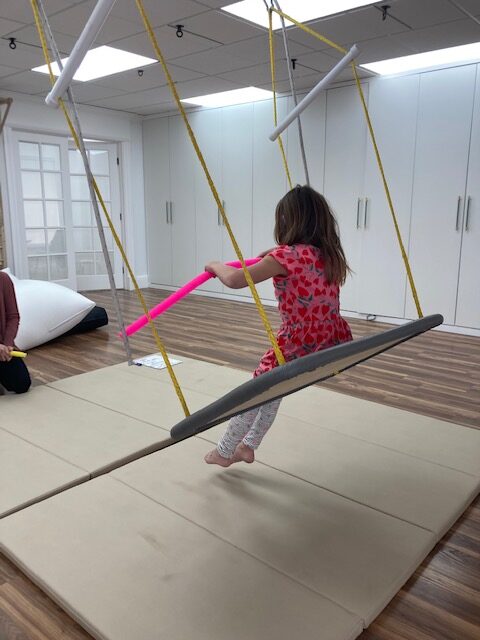
Occupational therapy is a field of healthcare that specializes in helping people of all ages to develop, recover, or maintain the skills and abilities they need to perform the activities of daily life. One area of occupational therapy that has become increasingly important is sensory integration, which involves the ability to process and respond appropriately to sensory information from the environment. In this blog post, we’ll explore the role of occupational therapy in sensory integration.
Evaluation and Assessment
Occupational therapists (OTs) are trained to conduct comprehensive evaluations and assessments to identify sensory processing difficulties in children and adults. They use a variety of standardized tools and assessments to evaluate a person’s sensory processing abilities, including how they respond to touch, movement, sounds, and visual input. Based on the results of the evaluation, the OT can develop a personalized treatment plan to address the person’s specific sensory needs.
Sensory Integration Therapy
One of the primary treatments used by OTs to address sensory integration difficulties is sensory integration therapy. Sensory Integration Therapy is an approach used by OTs that is used to help individuals who experience difficulties in processing sensory information. The therapy involves the use of various activities and exercises that are designed to stimulate the senses and help individuals better understand and respond to sensory information from their environment. Sensory Integration Therapy is based on the theory of Sensory Integration, which states that the brain processes and integrates sensory information from various senses, such as touch, movement, sight, sound, and smell. The theory suggests that when there is a breakdown in the processing of sensory information, it can lead to difficulties in functioning in daily life. During therapy, the occupational therapist works with the individual to develop a personalized treatment plan based on their specific sensory needs. The therapy can involve a wide range of activities, such as swinging, bouncing on a therapy ball, playing with sensory materials like sand or playdough, and engaging in movement-based activities such as obstacle courses. The goal of sensory integration is to help the individual develop better sensory processing skills and improve their ability to respond appropriately to sensory input. This can lead to improvements in a wide range of areas, including attention, behavior, communication, and overall participation in daily activities.

Environmental Modifications
OTs can also help make modifications to the person’s environment to better support their sensory needs. This can include things like using adaptive equipment to help the person participate in daily activities, modifying the lighting or sound levels in a room to reduce sensory overload, or creating a sensory-friendly space for the person to retreat to when needed.
Parent and Caregiver Education
OTs also play an important role in educating parents and caregivers on how to support a person with sensory processing difficulties. This can include teaching parents how to use sensory integration techniques at home, providing strategies for managing sensory overload, and helping parents understand the impact that sensory processing difficulties can have on a person’s daily life.
Collaboration with Other Healthcare Professionals
OTs often work closely with other healthcare professionals, including physicians, psychologists, and speech-language pathologists, to provide a comprehensive approach to addressing sensory integration difficulties. This collaboration can help ensure that the person’s overall needs are being addressed and that all aspects of their care are coordinated.
Conclusion
In conclusion, occupational therapy plays a critical role in addressing sensory integration difficulties in children and adults. Through comprehensive evaluations, sensory integration therapy, environmental modifications, parent and caregiver education, and collaboration with other healthcare professionals, OTs can help people develop the skills and abilities they need to participate fully in daily life. If you or someone you know is struggling with sensory processing difficulties, please reach out to us so we can find the best way to support you!







